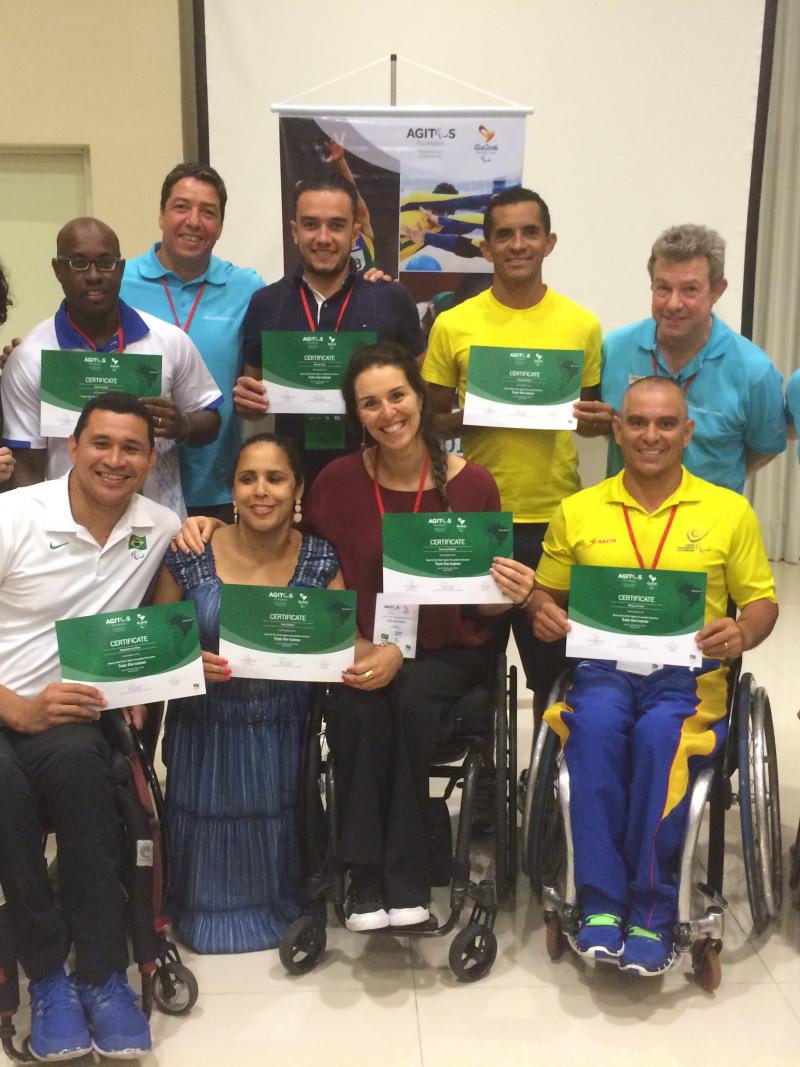Wheelchair basketball instructors reap benefits
An instructors course run by the International Wheelchair Basketball Federation had an big impact on the sport thanks to Agitos Foundation support. 16 Dec 2015
“The course offered a wide range of different aspects on the big field of teaching and educating.”
The Chairman of the International Wheelchair Basketball Federation (IWBF) Technical Commission, Norbert Kucera, has spoken of the positive impacts of an instructor’s course that was supported by the Agitos Foundation in 2015.
An International Referee Instructors course was held in Toronto, Canada, in March, after the IWBF successfully applied for funding via the Foundation’s 2014 Grant Support Programme.
IWBF Instructors are a select group of former or current officials who have refereed at the highest level. To maintain their status and knowledge and to allow them to train the next generation, they have to go through training every four years to ensure they are up-to-date with the current rules and regulations and technical skills.
Kucera thanked all the contributors to the course including IWBF Secretary General Maureen Orchard, the hosts Canadian Wheelchair Basketball Federation, the national Federations of the instructors and everyone involved with bringing the course together.
Since 2011 when the first instructor’s courses were held, the IWBF has seen the quality of referees improve dramatically. In 2015 the aim was to continue these rising standards and also to train more instructors in Africa, Asia and the Americas.
Participants received classroom and computer-based training where a programme uses live tagging actions of the referees in a game. The instructors are then asked to review the calls made, with an emphasis on the need to be positive when reviewing the material.
In addition, the instructor’s course was held at the same time as training for national referees under the age of 30. This meant that the instructors could practice their skills on the national referees, using them as their students.
Christopher Gregory, an instructor from Great Britain, found that element particularly useful: "The clinic was well prepared with good information available,” he said. “All of the course material was very good and everything was presented clearly so that it was easy to understand and absorb.
“I found the feedback on the presentation I did helpful as well. It was very good to have the U30's there so that we could work together and interact and practice what we had learnt in the daily classroom sessions".
The instructors left Toronto with a greater knowledge of acting as a supervisor and communication skills as well as having their work evaluated by their peers and course staff.
Jonathan Burford, an instructor from the USA, noted how well-constructed the course was: “I thoroughly enjoyed the instructor/U30 [under-30] clinics. I thought there was a nice balance of topics in the instructor clinic. Most of us had an opportunity to give a presentation and we were able to learn from the other instructors. The condensed format allowed us to cover a lot of material in a short time. I also enjoyed the U30 clinic. It looked like they had a good mix of topics as well.”
Canada’s Sebastian Gauthier reflected on how he has already used what he learnt in a real-life setting: "I learned a lot during that weekend, I already used that knowledge when I supervised a tournament."
Kucera believes that the instructors courses have led to a huge step forward for the sport.
“With the instructors course, we were able to realise the next step forward in not only teaching and educating our officials on court, but as well to go back to the fundamentals of each learning process: The skills of the teachers,” Kucera said.
“The course offered a wide range of different aspects on the big field of teaching and educating. It opened the focus to a variety of different tools, skills and materials which can be used to make our next generation of officials still a bit better to finally improve our great sport.”






